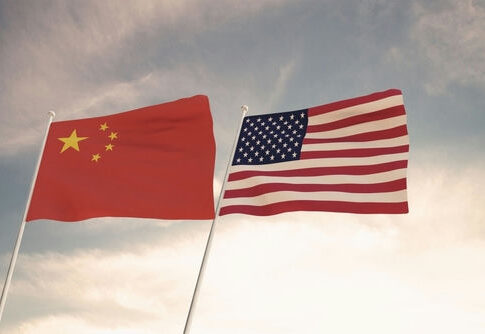Utah just drew a line in the sand by blocking a Chinese state-owned company from buying land near Provo Airport, leaving many wondering if this move sets a new precedent in national security measures.
Utah’s Bold Stand Against Foreign Influence
In a landmark decision, Utah has blocked the purchase of land near Provo Airport by Cirrus Aircraft, a company majority-owned by the Chinese state-owned defense contractor, AVIC. This decision follows legislation passed in 2023 and strengthened in 2024, aimed at preventing foreign ownership of land near strategic sites. The state’s commitment to national security outweighs the potential economic benefits, including the loss of a multimillion-dollar investment and hundreds of potential jobs.
Utah’s actions are part of a larger national trend, as several states have enacted similar laws to curtail foreign land ownership, particularly from countries deemed adversarial. The legislation mandates not only blocking new purchases but also requires the divestment of existing properties owned by such entities. The proactive stance by Utah is being lauded as a model for other states, emphasizing the importance of safeguarding strategic assets from foreign control.
Key Players and Their Roles
Governor Spencer Cox has been at the forefront of this initiative, supported by the Utah State Legislature and key figures like Rep. Candice Pierucci. Cox and the legislature have been adamant about prioritizing national security over foreign investments. Cirrus Aircraft, linked to AVIC, has been attempting to expand its operations in the U.S., but the transaction review process identified their ties to the Chinese military, leading to the blocking of their land purchase.
😱 Yellow Peril Hysteria
– Chinese Agricultural Interests in the US –
I have seen this map circulating on X today.
It is deceptive propaganda.
For example. Chinese interests are linked to ~33,000 acres of Utah agricultural land — .06% of Utah's land mass.
The map below… pic.twitter.com/BjJInGFTRW
— Will Schryver (@imetatronink) June 5, 2025
The Utah Department of Agriculture and Food plays a vital role in tracking foreign-owned land, ensuring compliance with the new laws. Federal agencies also contribute by providing intelligence and maintaining watchlists that help state officials make informed decisions. This collaborative effort highlights the power dynamics at play, where state and federal authorities work together to protect national interests.
Implications and Future Directions
The immediate impact of this decision is the prevention of a sensitive land acquisition by a Chinese-linked entity. While this may result in the loss of potential economic opportunities, it underscores Utah’s commitment to national security. The long-term implications include setting a strong precedent for future foreign investment restrictions, potentially deterring adversarial entities from attempting similar acquisitions.
We just blocked an attempted land purchase by a Chinese state-owned company near Provo Airport. Thanks to strong laws and operational vigilance, Utah is standing up to the CCP and protecting our national security.
From family farms to critical infrastructure, Utah land and… pic.twitter.com/R1ele4hhon
— Governor Cox (@GovCox) July 15, 2025
Utah’s decision may influence other states to adopt similar measures, contributing to a broader national trend of increased scrutiny over foreign ownership of strategic assets. The balance between economic development and security will continue to be a topic of debate, with Utah’s actions reflecting a shift towards prioritizing the latter. This move also signals to China and other adversarial countries that strategic assets in the U.S. are off-limits.

